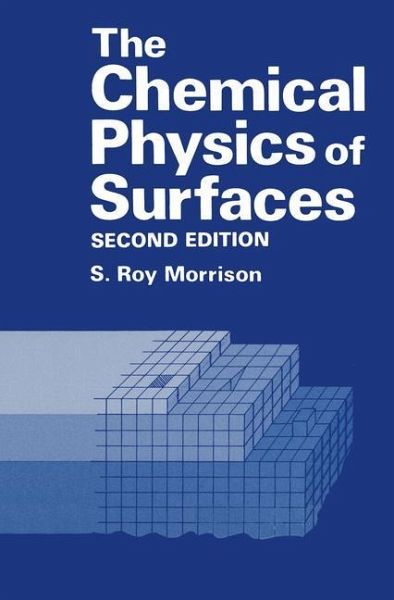
The Chemical Physics of Surfaces
Versandkostenfrei!
Versandfertig in 6-10 Tagen
113,99 €
inkl. MwSt.
Weitere Ausgaben:

PAYBACK Punkte
57 °P sammeln!
of available information. Even more importantly, some authors who have contributed substantially to an area may have been overlooked. For this I apologize. I have, however, not attempted to trace techniques or observa tions historically, so there is no implication (unless specified) that the authors referred to were or were not the originators of a given method or observation. I would like to acknowledge discussions with co-workers at SFU for input relative to their specialties, to acknowledge the help of students who have pointed out errors and difficulties in the earlier presentation, and to...
of available information. Even more importantly, some authors who have contributed substantially to an area may have been overlooked. For this I apologize. I have, however, not attempted to trace techniques or observa tions historically, so there is no implication (unless specified) that the authors referred to were or were not the originators of a given method or observation. I would like to acknowledge discussions with co-workers at SFU for input relative to their specialties, to acknowledge the help of students who have pointed out errors and difficulties in the earlier presentation, and to acknowledge the infinite patience of my wife Phyllis while I spent my sabbatical and more in libraries and punching computers. S. Roy Morrison 0 1 Contents Notation XV 1. Introduction 1 1. 1. Surface States and Surface Sites . 1 1. 1. 1. The Chemical versus Electronic Representation of the Surface. 1 1. 1. 2. The Surface State on the Band Diagram 4 1. 1. 3. The Fermi Energy in the Surface State Model. 6 1. 1. 4. Need for Both Surface Site and Surface State Models 6 1. 2. Bonding of Foreign Species to the Solid Surface 7 1. 2. 1. Types of Interaction. 7 1. 2. 2. The Chemical Bond . 10 1. 2. 3. Acid and Basic Surface Sites on Solids . 13 1. 2. 4. Adsorbate Bonding on Various Solid Types. 16 1. 2. 5. Movement of Surface Atoms: Relaxation, Reconstruction, and Relocation .














